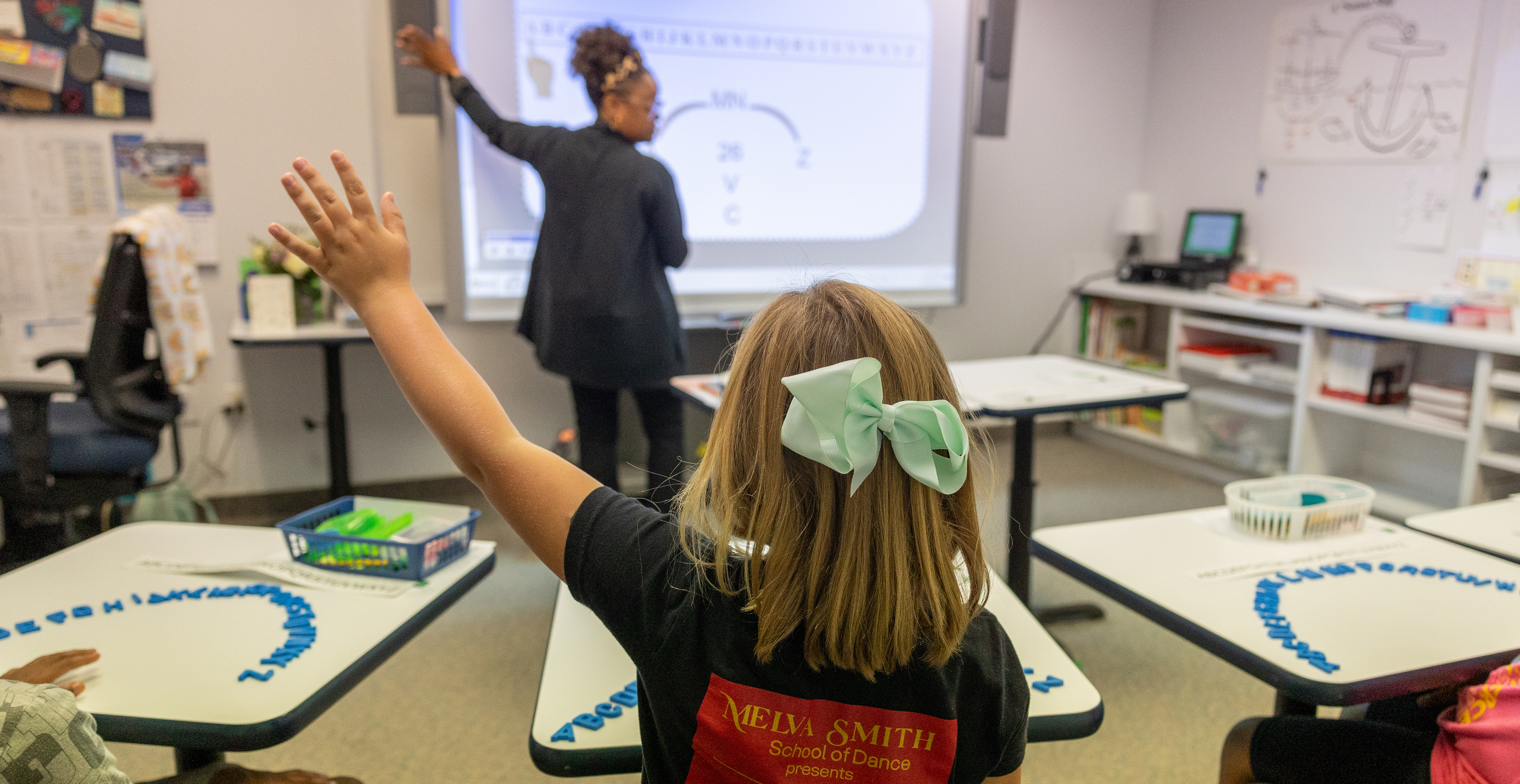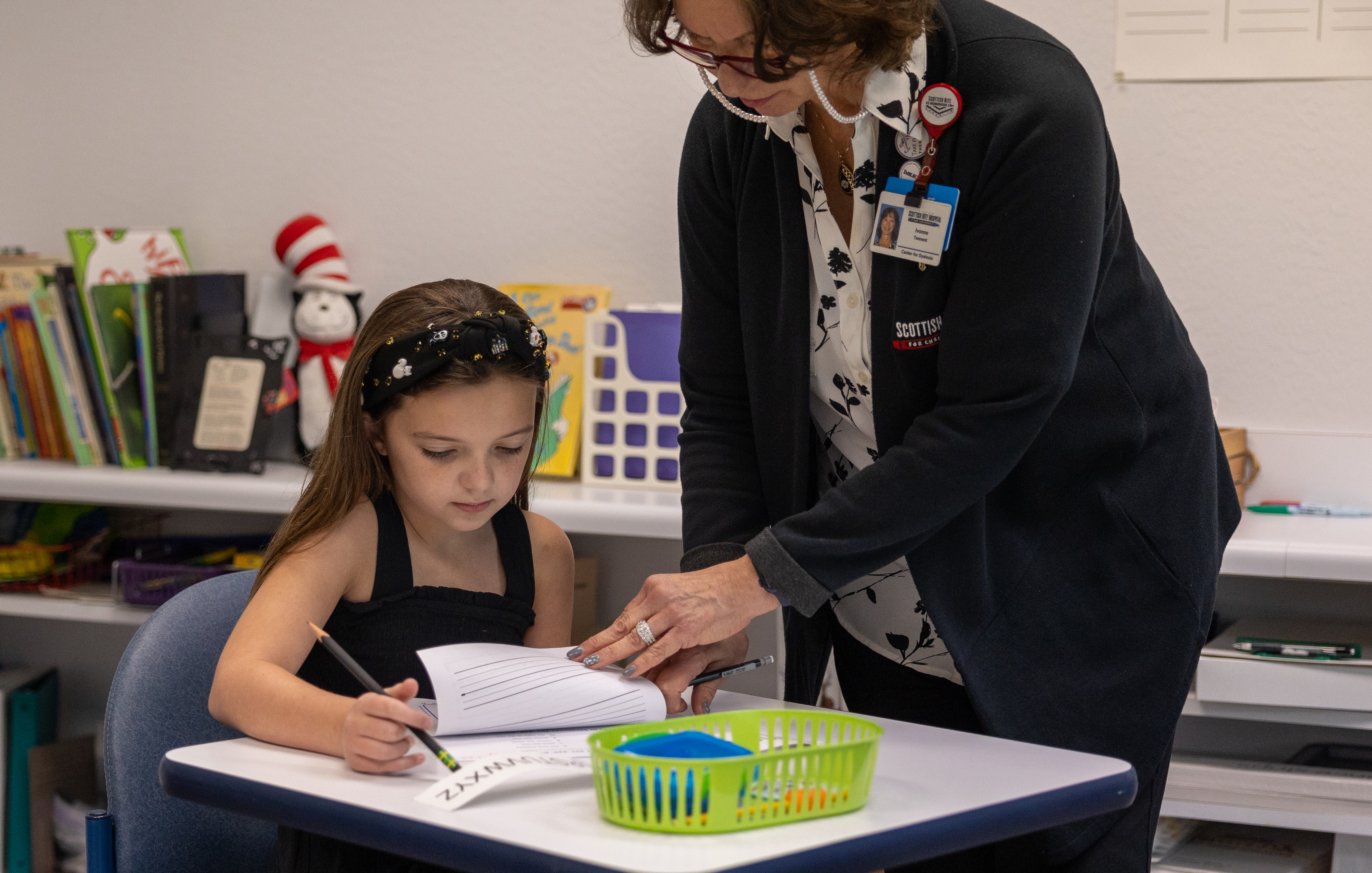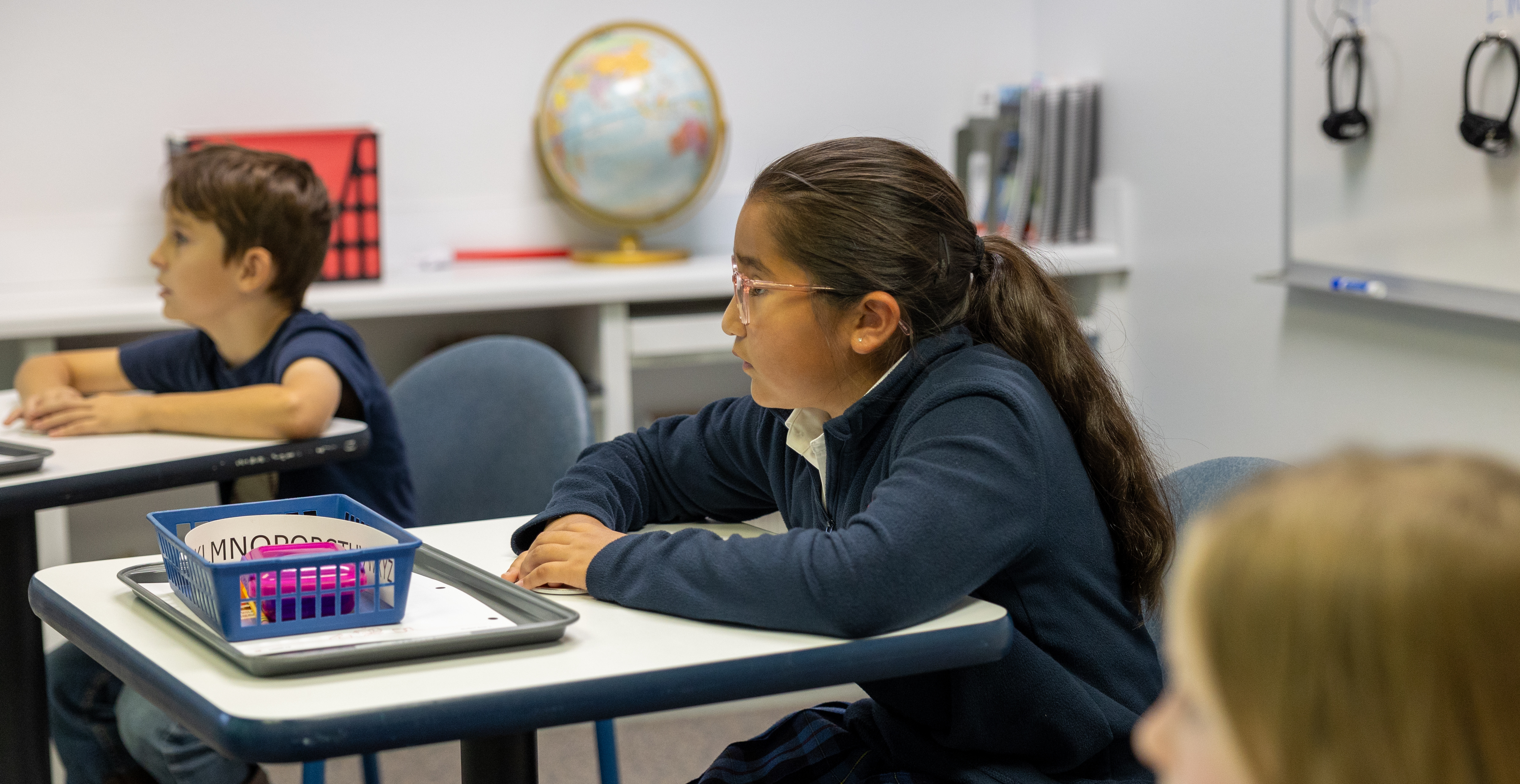
Oct 10, 2023 / Dyslexia & Learning Disorders
Students with Dyslexia Can Benefit from Classroom Accommodations
Why Students with Dyslexia Could Use School Accommodations
For students diagnosed with dyslexia, various accommodations can help them succeed in the classroom setting by improving their confidence and giving them the support they need to meet their educational goals. Academic accommodations are changes to materials, actions or techniques that enable students with disabilities to participate meaningfully in grade-level or course instruction. Because students with dyslexia can struggle with single word reading, accurate word recognition, poor spelling and poor decoding abilities, accommodations can be crucial to give the student the tools they need to accomplish their work with less difficulty.
What Kind of Academic Accommodations Are Helpful?
Accommodations for students with dyslexia or other learning disorders might look very different for each student based on their individual needs, and methods do not have a one-size-fits-all strategy. The impact of dyslexia on each individual student determines the level of accommodations. However, there are some common accommodations that might be offered for students with dyslexia:
Accommodations are intended to provide a student with a learning disability a ‘level playing field’ and not count the impact of their learning disability against them. Spelling can be particularly difficult for a student with dyslexia and can take a lot of time and energy to ensure proper spelling. If the lesson’s primary focus is on conveying the main idea of the story rather than on spelling, not penalizing the student for spelling errors allows them to focus their time and mental energy on the key objective of telling the story’s main idea.
Using Assistive Technology to Complete Schoolwork and Homework
Allowing students to utilize assistive technology, such as text-to-speech or speech-to-text, can help the student by not requiring them to spend extra time and energy decoding words. Assistive technology includes any device, piece of equipment or system that helps bypass, work around or compensate for an individual’s specific learning deficits.
Accommodations That Harm More Than Help
Because accommodations are different for every student, what works for one student may not be beneficial for another. However, there are some common accommodations that have been found to be counterproductive or hinder students’ long-term academic journey.
In education, both accommodations and modifications are strategies used to support students with disabilities. However, they serve different purposes and involve different levels of adjustments to the classroom environment and curriculum.
Accommodations:
Students with dyslexia benefit greatly from appropriate, customized accommodations that enhance their learning experiences and foster confidence in their abilities. These accommodations allow them to overcome challenges associated with reading, spelling and decoding. Accommodations vary for each student and should be carefully considered with the student, parents, teachers and dyslexia therapists to ensure the success of the plan. In Texas, there are laws that protect students with learning disabilities and guarantee them the resources they need to learn effectively. If you think your student would benefit from accommodations, start by contacting your child’s teacher or dyslexia therapist. Students need an Individualized Education Plan (IEP) that is created by an Admission, Review and Dismissal (ARD) committee to solidify their accommodations throughout their academics. Learn more about dyslexia laws, interventions and accommodations in Dyslexia 411.
Learn more about our Luke Waites Center for Dyslexia and Learning Disorders.
For students diagnosed with dyslexia, various accommodations can help them succeed in the classroom setting by improving their confidence and giving them the support they need to meet their educational goals. Academic accommodations are changes to materials, actions or techniques that enable students with disabilities to participate meaningfully in grade-level or course instruction. Because students with dyslexia can struggle with single word reading, accurate word recognition, poor spelling and poor decoding abilities, accommodations can be crucial to give the student the tools they need to accomplish their work with less difficulty.
What Kind of Academic Accommodations Are Helpful?
Accommodations for students with dyslexia or other learning disorders might look very different for each student based on their individual needs, and methods do not have a one-size-fits-all strategy. The impact of dyslexia on each individual student determines the level of accommodations. However, there are some common accommodations that might be offered for students with dyslexia:
- Not marking or taking off points for spelling errors.
- Allowing the use of assistive technology, e.g., speech-to-text or text-to-speech.
- Grading written work primarily on content versus spelling.
- Reducing the number of words to spell.
- Providing a word bank for typically misspelled words.
- Using a word bank to provide words to choose from.
- Offering alternative projects instead of written reports, such as an oral report or an art project.
- Reducing written work if possible.
- Encouraging verbalization of ideas before writing (i.e., record then write, use mind mapping for ideas, use sentence starters, etc.)

Accommodations are intended to provide a student with a learning disability a ‘level playing field’ and not count the impact of their learning disability against them. Spelling can be particularly difficult for a student with dyslexia and can take a lot of time and energy to ensure proper spelling. If the lesson’s primary focus is on conveying the main idea of the story rather than on spelling, not penalizing the student for spelling errors allows them to focus their time and mental energy on the key objective of telling the story’s main idea.
Using Assistive Technology to Complete Schoolwork and Homework
Allowing students to utilize assistive technology, such as text-to-speech or speech-to-text, can help the student by not requiring them to spend extra time and energy decoding words. Assistive technology includes any device, piece of equipment or system that helps bypass, work around or compensate for an individual’s specific learning deficits.
- Speech-to-text software can help students who struggle with spelling and writing by converting spoken words into typed text, and it can help struggling writers and spellers get their ideas on paper.
- Text-to-speech software is often a vital resource for students with dyslexia to aid in reading, promote comprehension and enhance overall literacy skills. Text-to-speech converts any written text into spoken words and is popular among students who have difficulties with reading. By presenting the words auditorily, the student can focus on the meaning on the words instead of spending their energy on trying to sound out the words.
Accommodations That Harm More Than Help
Because accommodations are different for every student, what works for one student may not be beneficial for another. However, there are some common accommodations that have been found to be counterproductive or hinder students’ long-term academic journey.
- Providing additional time for assignments or tests. While some students with dyslexia may benefit from additional time, in many cases this does not address the underlying issues that create difficulties for the student. For some students, extra time can cause stress or lead to procrastination.
- Using color overlays or special fonts. Some students with dyslexia may find it easier to read or focus by using specific colors or fonts, but this has not been proven to be an effective method for assisting reading. These adjustments may even create extra distractions for some students and make it more difficult for them to read.
- Grouping dyslexia students together or removing students from the class for individual instruction. By isolating students with dyslexia, students are not benefiting from the diverse learning environment that is provided in the classroom with their peers. Segregating students with dyslexia from others may make students feel different, less than or discouraged.
In education, both accommodations and modifications are strategies used to support students with disabilities. However, they serve different purposes and involve different levels of adjustments to the classroom environment and curriculum.
Accommodations:
- Minor adjustments: Accommodations make relatively minor changes to how a student works with general education curriculum without changing the content itself.
- Same curriculum: With accommodations, the curriculum, or core content of what is being taught to the students, is not altered. Accommodations may change how the curriculum is taught to the student or how the mastery of that content is tested.
- Same goals: educational goals and objectives remain the same as other students.
- Grading stays the same: Students receiving accommodations are graded on the same scale using the same criteria as their peers. Accommodations may improve a student’s performance but do not change the method of how they are graded.
- Substantial changes: Modifications involve making significant changes to curriculum content, assignments or assessments and alter the expectations for the student.
- Different curriculum: With modifications, curriculum is often adjusted to meet the student’s needs.
- Different goals: Students with modifications will be working toward different goals and will have a lower level of expectations.
- Grading is changed: For students with modifications, the grading scale and criteria are altered to fit the student’s adjusted goals and expectations.
Students with dyslexia benefit greatly from appropriate, customized accommodations that enhance their learning experiences and foster confidence in their abilities. These accommodations allow them to overcome challenges associated with reading, spelling and decoding. Accommodations vary for each student and should be carefully considered with the student, parents, teachers and dyslexia therapists to ensure the success of the plan. In Texas, there are laws that protect students with learning disabilities and guarantee them the resources they need to learn effectively. If you think your student would benefit from accommodations, start by contacting your child’s teacher or dyslexia therapist. Students need an Individualized Education Plan (IEP) that is created by an Admission, Review and Dismissal (ARD) committee to solidify their accommodations throughout their academics. Learn more about dyslexia laws, interventions and accommodations in Dyslexia 411.
Learn more about our Luke Waites Center for Dyslexia and Learning Disorders.



